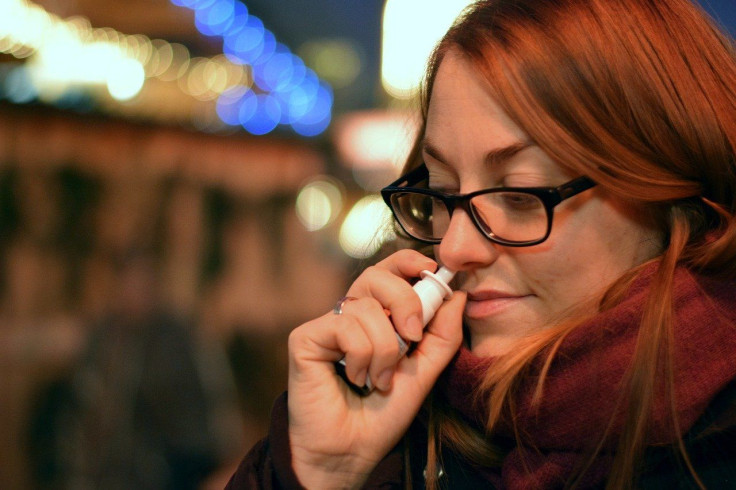COVID-19 Breakthrough: 'AeroNabs' Nasal Spray Promises Powerful Protection Against Virus
KEY POINTS
- Scientists at UCSF believe they might have discovered a cure for coronavirus
- Invention based on llama-inspired nanobodies that bind to the coronavirus proteins
- It can help people who do not have access to vaccines and those who might not respond well to one
A nasal spray can dramatically decelerate the spread of COVID-19, according to San Fransico researchers. They have generated a very potent molecule that could work like a traditional antibody.
Experts at the University of California, San Francisco (UCSF) found a way of deploying antiviral drugs via inhalers which will directly enter the airways of the affected individuals. Researchers at Synairgen found last month that a nebulizer that delivers interferon-beta aerosols into COVID-19 patients’ lungs was a potential treatment.
The UCSF researchers designed a nasal spray comprising a particular type of neutralizing-antibody-like proteins which can inhibit the novel coronavirus from infecting the host cells.
The aerosol formulation called 'AeroNabs' could be self-administered using inhalers or nasal sprayers once daily. AeroNabs can help protect people against SARS-CoV-2 until there is a potential vaccine candidate.
The researchers are actively discussing with commercial partners to speed up the manufacturing and clinical testing of this novel approach. If found successful, they plan on making AeroNabs widely available as a cheap, over-the-counter medication to prevent as well as treat coronavirus infection.
"Far more effective than wearable forms of personal protective equipment, we think of AeroNabs as a molecular form of PPE that could serve as an important stopgap until vaccines provide a more permanent solution to COVID-19," said AeroNabs’ co-inventor Peter Walter, professor of biochemistry and biophysics at UCSF.
They also highlighted that AeroNabs could help those who cannot access or do not respond to COVID-19 vaccines and that it could be a more permanent line of defense against the new virus.

Although AeroNabs was engineered entirely in the laboratory, the researchers were inspired by nanobodies – antibody-like immune proteins found naturally in llamas, camels and related animals. Despite functioning like the antibodies found in the human immune system, nanobodies are effectively advantageous as therapeutics against SARS-COV-2.
After analyzing more than 2 billion synthetic nanobodies to find suitable candidates that can block the novel coronavirus’ spike protein, they shortlisted 21 of them, among which three were highly promising.
© Copyright IBTimes 2024. All rights reserved.





















